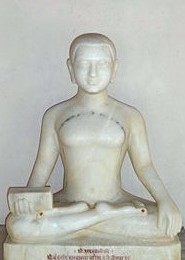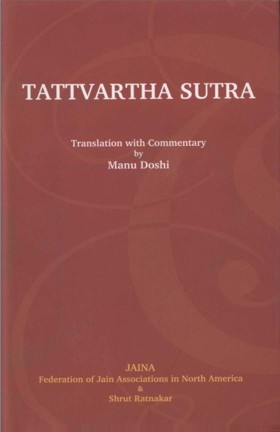06.01 Kāyvāngmanahkarrna Yogah
Audio: Sanskrit: कायवाङ्मनः कर्म योग: ।
Hindi: काय, मन और वचन की क्रिया योग है।
06.02 Sa Āsravah
Audio: Sanskrit: स आस्रवः ।
Hindi: वही आस्रव है अर्थात् कार्म का सम्बन्ध कराने वाला है।
06.03 Shubhah Punyasya
Audio: Sanskrit: शुभः पुण्यस्य ।
Hindi: शुभ योग पुण्य का बन्ध हेतु है।
06.04 Ashubhah Pāpasya
Audio: Sanskrit: अशुभ: पापस्य ।
Hindi: अशुभ योग पाप का आस्रव है।
06.01-04
English: These sutras state that exercising of physical, vocal and mental faculties constitutes Yog and that results in acquisition of Karma. Body, speech and mind are the organs through which those faculties are exercised. Those organs themselves are insentient and are not able to exercise their capabilities in absence of soul. In other words, Yog necessitates the interaction of soul with those organs. Since the interaction continues to take place so long as one is alive, Yog is bound to occur every time. If that causes Karma, it would not be possible for anyone to prevent the acquisition of Karma. As such, only undue exercising of the faculties can be deemed as causing Asrav. In other words, one acquires Karma when he exercises his faculties with attachment or resentment.
The wholesome exercising of those faculties leads to Punya (meritorious Karma), while the unwholesome one leads to Pap (sin). The activity undertaken with good intention is termed as wholesome exercising of faculties and that undertaken with bad intention is termed as unwholesome.
Worship, helping, charity etc. are wholesome physical activities, while violence, stealing etc. are unwholesome ones, speaking truth, adoration etc. are wholesome vocal activities, while lying, abusing etc. are unwholesome ones. Sympathy, compassion etc. are wholesome mental activities, while jealousy, evil attitude etc. are unwholesome ones. Āsrav resulting from the wholesome activities is Punya and that resulting from the unwholesome ones is Pap. Punya and Pap are thus the components of Āsrav.
It should, however, be noted that no worldly activity can be entirely wholesome or unwholesome. Some sorts of merits as well as demerits are associated with every activity. The difference lies in degrees. If meritorious portion is higher, the activity is termed as wholesome and if unmeritorious one is higher, it is termed as unwholesome.
 Acharya Umaswati
Acharya Umaswati
